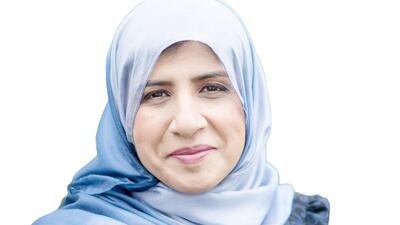It’s been a busy week. In the past seven days I’ve had to prep my seven-year-old for two extra curricular exams and accompany her to them. I’ve had to make two costumes for both children to wear to school. I’ve also had to build a school project and memorise times tables. This is in addition to planning a rigorous timetable of activities for both of them to engage in during the upcoming school holidays, weaving together play dates, camps and day trips. And that’s before sorting out the usual uniforms, homework, cooking and bedtimes. I’m exhausted. And every week feels the same.
If you’re a mum like me, you might be nodding along, weeping into a mug of cold tea that you made at breakfast time and are only getting around to drinking even though you’re about to go to bed. Because sometimes, as a mum, you need to prove to yourself that you can do normal things. Like make it to the end of a cup of tea. Even if it does take you 12 hours and it’s been reheated eight times.
So it comes as no surprise to me that a recent survey of 2,000 mothers of children aged five to 12 in the US has discovered that motherhood is more than a full-time job. Tell us something that us mums don’t already know! In fact, according to the research, mums spend on average 98 hours every week just on parent-related tasks. That’s the same as two and a half jobs. We are clocking on at 6.23am and clocking out at 8.31pm, although I feel like the duties involved in planning and preparation along with night time wake ups goes well past dinner time. And of course for working mums, there’s another job on top of all this.
Add all the jobs up and I’m doing more than three people’s worth of work. Am I a supermum? Heck yes. Do I want to be? Not really.
While the research characterises the work in the gender neutral term “parent-related tasks”, studies show not only does the vast bulk of parenting fall on women’s shoulders in absolute terms, but it also falls on women in proportionate terms too. A study by Ohio State University for example shows that after the birth of a new baby, the mother’s workload increased by 21 hours compared to the father’s that increased by 12.5 hours. So in real terms her workload increased more, and it was also a 70 per cent increase in relative terms, and this could not be explained by differences in paid work hours or breastfeeding.
_______________
Read more from Opinion
A time of growing confidence for the Commonwealth network of countries
The UAE is now firmly established as a destination of culture
Turkey threw a stone into Syria. Its impact will be felt for quite some time
_______________
You can also add to this that women do the disproportionate share of the housework and tasks.
What you end up with is a picture of a family where the woman is working around three to five jobs in total. And given that childcare and housework accrue almost no pay, this work falls entirely under the radar. Add to this that any paid employment that women do undertake is victim to a gender pay gap, and the output appears to be a massive proportion of our population being excessively overworked with almost no recognition, financial, emotional or otherwise.
My concern is that the response to these revelations, from men who still won't step up, is to shrug their shoulders and say "that's why mums are so amazing!" rather than doing anything to help.
All of this doesn’t even begin to cover what is increasingly known as the ‘emotional load’ that women carry. That is all the planning, research and organisation required to manage children and a household which generally fall on the mother. This is invisible but intensely draining. How can we even measure and account for the toll it takes in terms of stress and the effect on physical and mental health.
What is better than lip service to mothers, is actions. Taking on the workload would be the best way to show appreciation. In fact, it needs to be done because doing the work is not about appreciation or a being a kindness or a gift. The workload in the household belongs to both parents.
That’s why I’m wondering as a starter if I should outsource this article to my husband so he's doing his share of the overall load.


